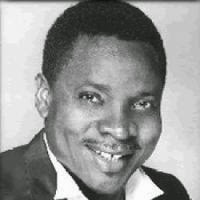Salute To Sparrow
The Caribbean Is One Nation.
A salute to Sparrow
 |
| Mighty Sparrow |
The Mighty Sparrow has lived to experience effects of an advancement in national consciousness going beyond sentiments expressed in his famous calypso, “Memories”.
That Winsford Devine composition, sung by Sparrow in 1973, is dedicated to “those who died”. But it is a measure of growing national maturity that Dr Slinger Francisco, unlike many other sung heroes of the Caribbean, has received official accolades while he is yet alive. Few, if any, would argue against Sparrow, now 79, receiving such richly deserved recognition for his long career of achievements. The Express Individual of the Year 2014 thus counts as a timely celebration of an iconic artiste and larger-than-life model of indigenous Caribbean possibility.
The Express award coincided with the premiere of a Ministry of the Arts and Multiculturalism exhibition, titled “Treasures from The Hideaway”, memorialising Sparrow. At the height of the 2015 Carnival season, then, it is especially fitting that the life and work of “The Calypso King of the World”, a leading figure in the festival, are being extolled and exalted to such a level as to meet highest national expectations. Arts and Multiculturalism Minister Lincoln Douglas voiced approbation shared within and beyond the region, hailing Sparrow for having supremely used his art “as a vehicle to communicate the Caribbean perspective to the world”.
It should be borne in mind, however, that Sparrow’s late-life respectability bears little resemblance to the young and bold performer who entered the calypso tents nearly 60 years ago. And it is not that Sparrow has changed—even though now frail in body, his voice retains all the old suggestiveness and his eyes the mischievous glint that propelled him to the top of the calypso arena. As calypso scholar Gordon Rohlehr notes in his book, A Scuffling of Islands, Sparrow’s “risque calypsoes were more risque than any had ever been before”, while his commentary calypsoes “set new boundaries for incisive criticism”.
So what has changed are the times, the mores and the image of calypso. And this newfound respect for calypso came about in large part because of Sparrow himself, who insisted on financial compensation that reflected the worth of the performers and, more importantly, who himself embodied a professionalism that raised the level of the craft to an artform.
This is why Sparrow and his songs have persisted beyond their time, and why so many of his lyrics have entered the national consciousness. In their precision of metaphor and vividness of image, Sparrow’s performance of his calypsoes fulfilled the fundamental function of art—to rouse people to a new consciousness of self and identity.
In this context, the current cherishing of Sparrow’s contribution transcends traditional celebration of just “those who died”.
Trinidad Ex[press Editorial Friday 13th. February 2015



Comments